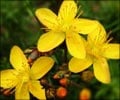A new systematic review of studies has found that herbals like of devil's claw, white willow bark and cayenne plasters is highly beneficial for treating shot-term low back pain
A new systematic review of studies has found that herbals like of devil's claw, white willow bark and cayenne plasters is highly beneficial for treating shot-term low back pain. The herbal preparation seems to be equally effective as pain medication and is found to be better than placebo.
The review comprised 10 randomized controlled trials involving nearly 1,600 adults who had acute, sub-acute or chronic low back pain.The authors looked at randomized controlled trials of the three herbals that involved nearly 1,600 adults with acute, sub-acute or chronic low back pain. The studies pitted devil's claw (Harpago procumbens), white willow bark (Salix alba) and cayenne (Capsicum frutescens) against sham pills and against Vioxx, the painkiller since removed from the market amid concerns over its long-term safety.
“The results of these 10 trials suggest that specific herbal medicines may be effective for short-term (four to six weeks) improvement in pain and functional status for individuals with acute episodes of chronic non-specific low-back pain,” the authors concluded. "These herbal medicines could be considered as treatment options for acute episodes of chronic low back pain," they said.
But the authors cautioned that the long-term efficacy and safety of the herbal treatments remain uncertain because "there is insufficient evidence to make definitive conclusions regarding those trials comparing herbal medicine interventions with standard drugs."
The trials of devil's claw were the strongest in terms of methodology, followed by white willow bark and cayenne, the trials of which were rated "generally of low quality."
Current standard treatments include tissue stimulation, pain medication, exercise and back braces. Drugs and physical activity show the best results, the authors said.
Advertisement
In a much smaller trial, there did not appear to be any difference between devil's claw and Vioxx.
A trial of cayenne plasters produced improvement in pain versus placebo but no difference versus a homeopathic preparation.
“Given that Vioxx was taken off the market due to safety concerns, at this point it would be desirable to recommend all three of the above alternatives for short-term relief, but medication-herbal medicine interactions must always be considered,” Gagnier said, cautioning, “These treatments should not be tried without the supervision of a qualified medical professional,” he said.
Dr. Michael R. Marks, chief of the medical staff at Norwalk Hospital in Connecticut, agreed that herbal treatment may be tried but should not be seen as a replacement for conventional pain killers. “There is probably no reason for the individual without any underlying medical problems not to try these treatments,” Marks said. “But there is really too much unknown about the potential side effects of these medications. A good deal of the herbal medicines prolong bleeding time and interact with anesthetic agents.”
He also said that patients don't always see the potential danger in herbals because they are not regulated. "That is the major concern among the medical community — the lack of consistency of the preparations and exactly what the interactions are with traditional medications.
Source: Newswise









